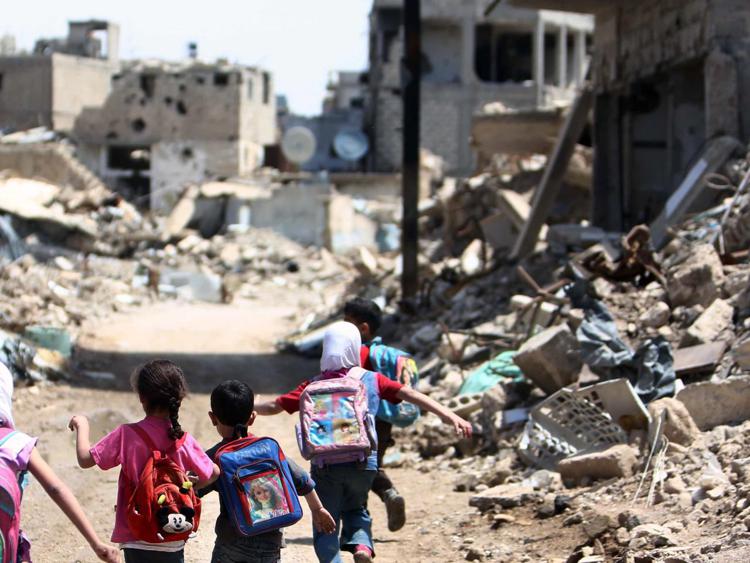

Conflict and protracted crises in several Middle East and North African countries are stymying efforts to eradicate hunger in the region by 2030, the United Nations Food and Agriculture Organisation warned on Thursday.
The continuing intensification of violence and strife is opening a wide "hunger gap" between countries being affected by conflicts and those that are not, according to FAO's 2017 Regional Overview of Food Security and Nutrition in the Near East and North Africa (NENA).
The report highlights several NENA countries - Syria, Iraq, Yemen and Libya - that have been hit especially hard by conflict, with severe consequences for the incomes and food security of their populations.
In Syria, violence has driven down the country's Gross Domestic Product (GDP) by a whopping 67 percent and severely undermined food security: 70 to 80 percent of Syrians now need humanitarian assistance, while 50 percent require food assistance, said the report.
In Iraq, where violence has led to a 58 percent decline in GDP, 30 percent of the population needs humanitarian assistance while 9 percent requires food assistance, the report found.
Yemen is also being wracked by conflict, leading to a situation in which 70 to 80 of the population are in need humanitarian assistance and 50 percent require food assistance, the report said.
Libya is another hot spot where conflict is undermining food security; there, 6 percent of the population are in need of food assistance, according to the report.
In NENA countries directly impacted by conflict, 27.2 percent of all people were chronically hungry or undernourished between 2014 and 2016 - a figure comparable with the world's poorest countries, the report noted.
Chronic malnourishment is six times higher in the conflict-affected countries than in those NENA countries not affected by strife (4.6 percent, on average), the report found.
Meanwhile, 'severe food insecurity' - another measure used by FAO to assess hunger - in conflict-affected countries now is double that in non-conflict countries, the report warned.
Moreover, the proportion of chronically hungry people in conflict zones is exercising a strong drag effect on hunger reduction in the whole NENA area, the report underlined.
"When countries in the region are suffering from an escalation of conflicts, the aim to tackle the region's deepest concerns of malnutrition, water scarcity and climate change becomes more challenging but at the same time more urgent," said FAO assistant director-general Abdessalam Ould Ahmed.
Building resilience and sustaining peace in the Near East and North Africa region are crucial to improving peoples' well-being, he stressed.